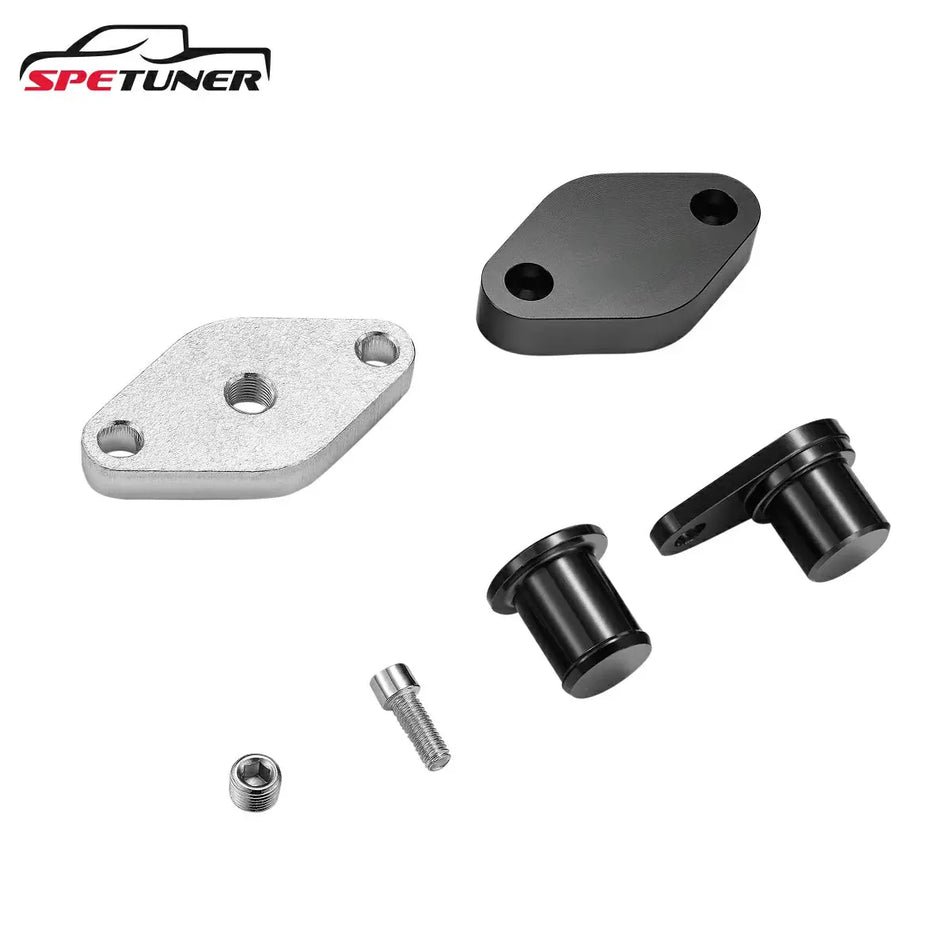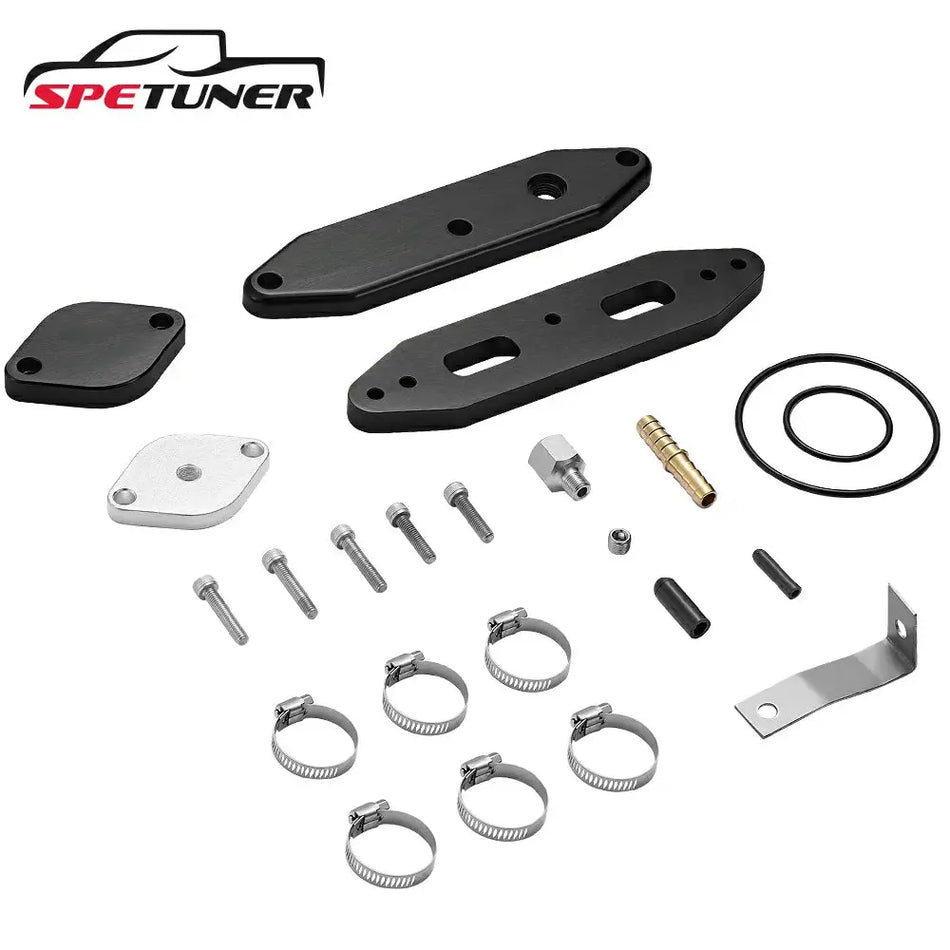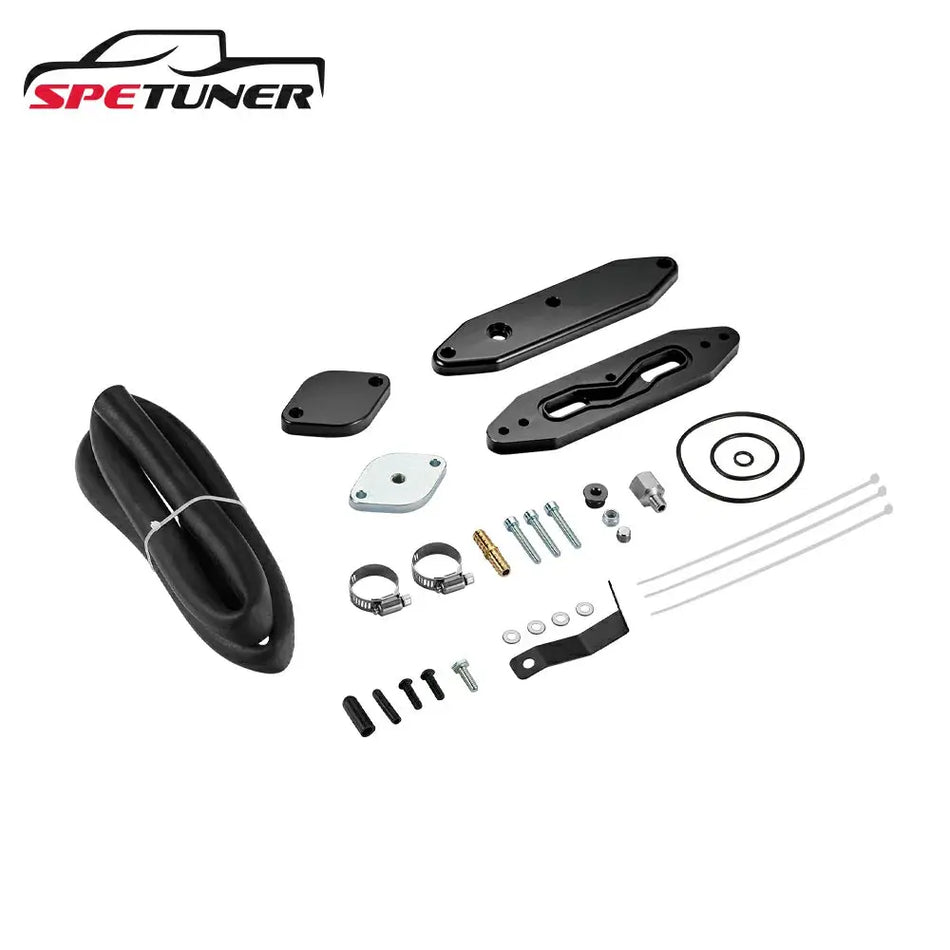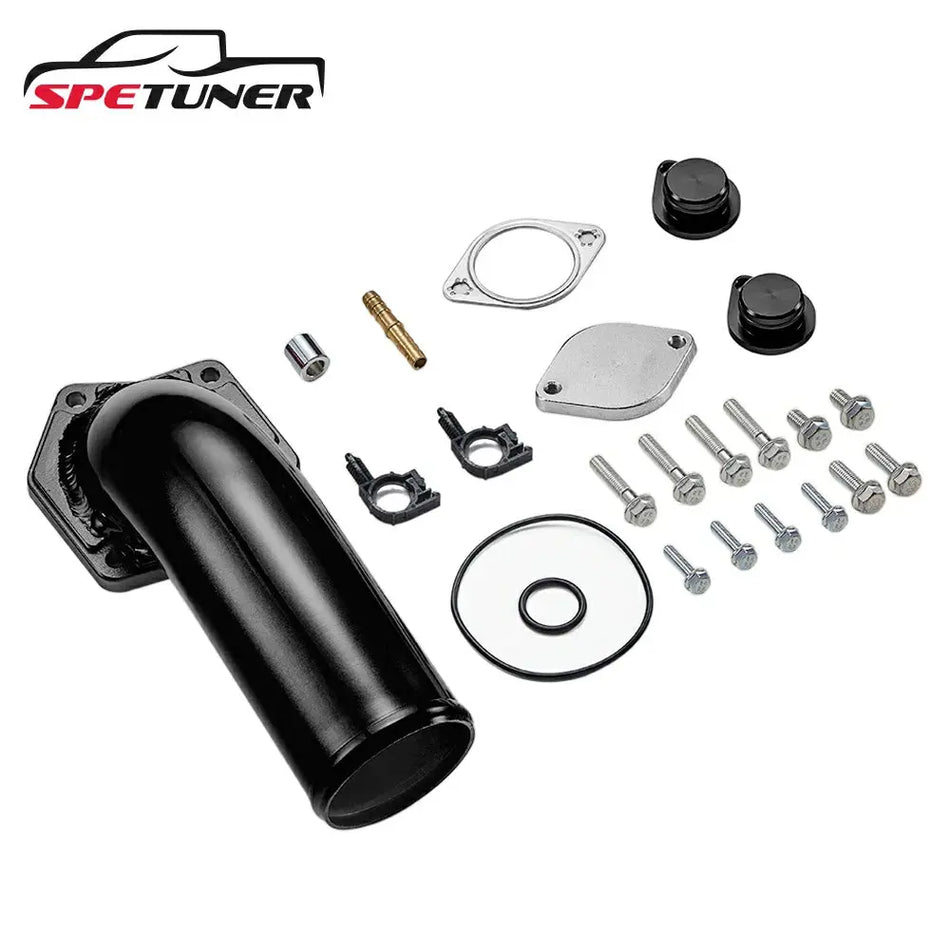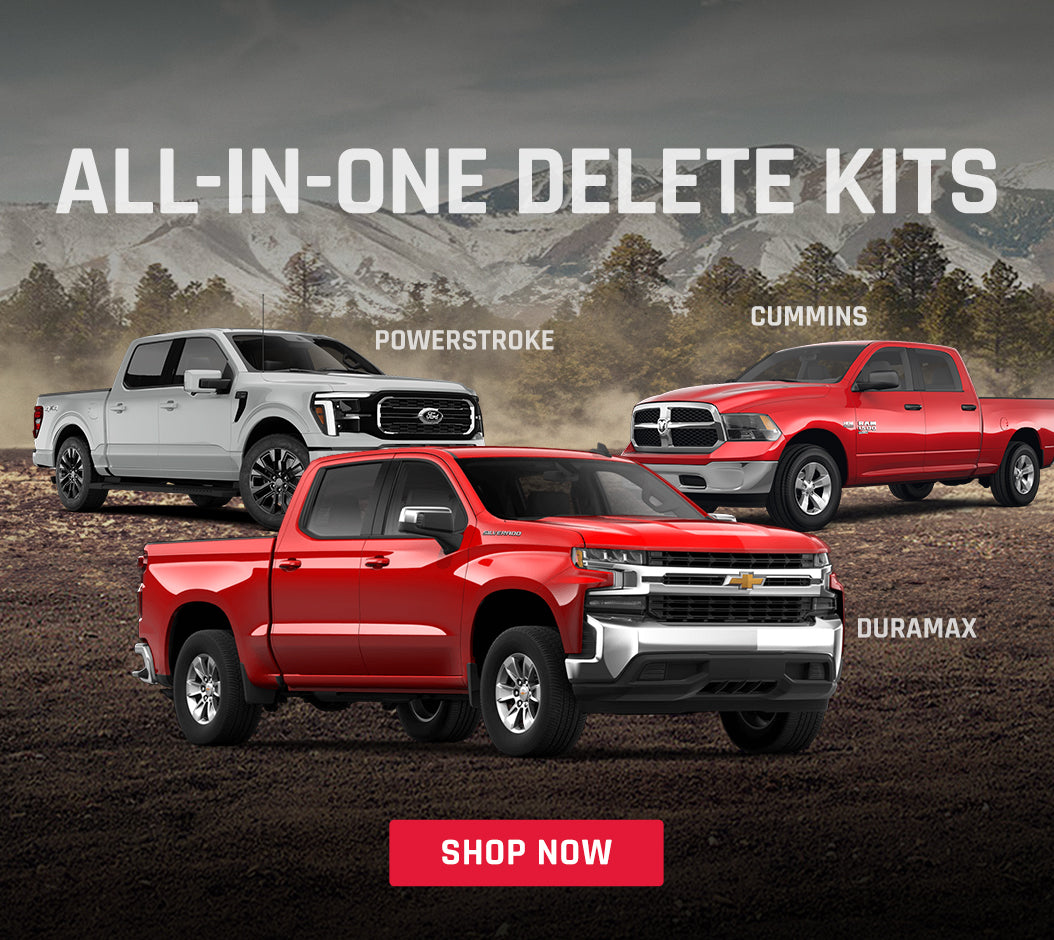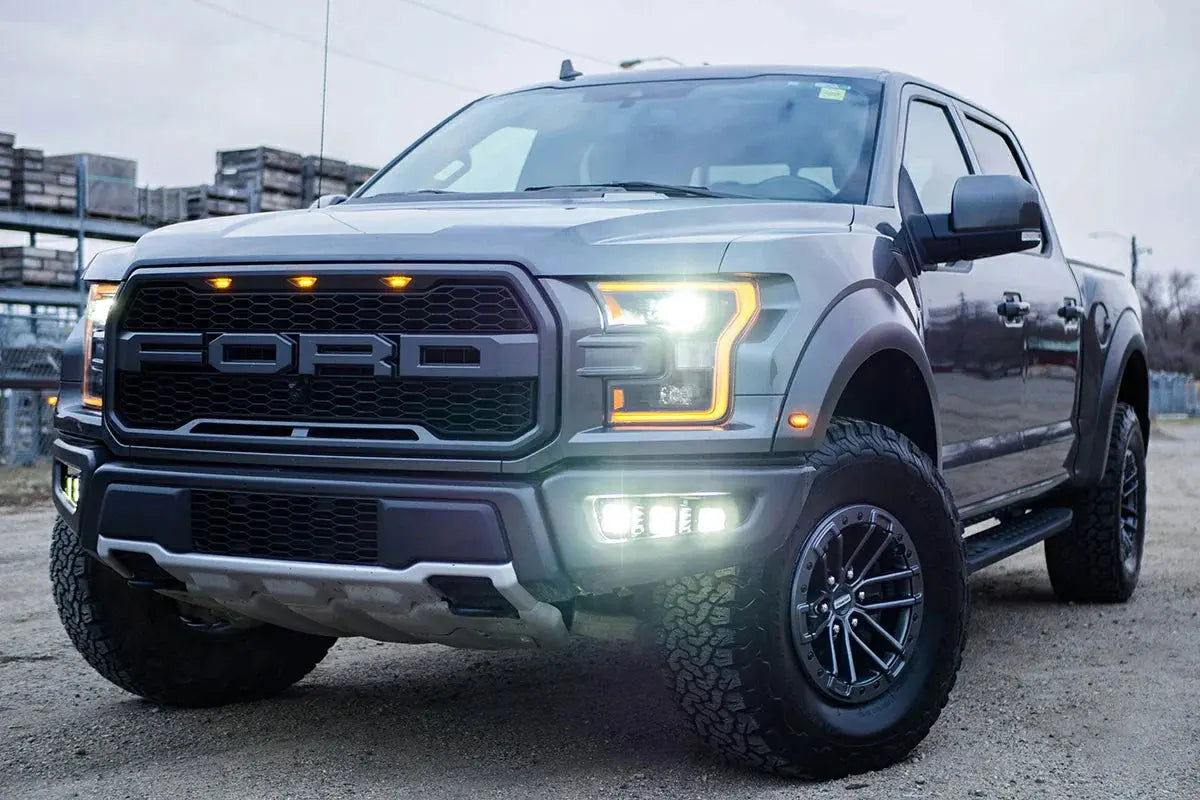Have you ever left your phone charger behind at a random motel? It’s annoying, sure, but nowhere near as costly as ignoring your truck’s CCV filter. While this small component may not grab your attention, it plays a critical role in keeping your truck’s engine healthy—especially if you’re tackling off-road trails.
This article’ll explore what a CCV filter is, how it works, and why it’s crucial for off-road driving. Plus, we’ll explain why SPETUNER’s CCV Reroute Kits are the ultimate upgrade for any off-road enthusiast.
What Does a CCV Filter Do?
Let’s start with the basics. CCV stands for Crankcase Ventilation. During normal engine operation, pressure builds up in the crankcase as the pistons move. Without proper ventilation, this pressure can cause severe engine damage, like blown seals or oil leaks.
This is where the CCV filter comes in. It safely vents crankcase pressure while filtering out contaminants like oil vapor, unburnt fuel, and soot—protecting your engine from “breathing in” harmful junk. Think of it as your engine’s lungs.
For off-road enthusiasts, the CCV filter is even more important. It prevents contaminants like dust, mud, and moisture from entering the system, ensuring your truck’s engine stays clean and efficient in harsh environments.

Why Is the CCV Filter Essential for Off-Road Use?
Off-road driving pushes your engine harder than daily commutes. From steep inclines to muddy trails, here’s why a functional CCV filter is a non-negotiable for off-roaders:
Protects Against Contaminants
Off-road environments expose your engine to extreme conditions. A CCV filter keeps sand, dust, and moisture out of your crankcase, reducing the risk of buildup that can damage your engine.
Prevents Pressure Build-Up
Heavy towing or prolonged idling in tough terrains increases crankcase pressure. A clogged or missing CCV filter can’t regulate this, leading to oil leaks or worse.
Enhances Performance
In high-stress situations, like towing trailers or climbing steep hills, the CCV filter ensures your engine runs at peak efficiency by maintaining clean airflow.
Improves Longevity
A well-maintained CCV filter reduces wear and tear on your engine, extending its life even in the most demanding off-road conditions.
What Happens If You Ignore Your CCV Filter?
It’s tempting to overlook this small component, but ignoring your CCV filter can lead to:
· Oil Leaks: Excess crankcase pressure forces oil out of seals, creating messy (and expensive) leaks.
· Reduced Performance: A clogged filter limits airflow, resulting in sluggish acceleration, worse fuel efficiency, and reduced power—noticeable when towing or tackling steep trails.
· Environmental Harm: Unfiltered crankcase vapors increase harmful emissions, impacting both the environment and your truck’s performance.
· Long-Term Engine Damage: Over time, neglecting your CCV filter can cause severe mechanical issues, including blown seals and contaminated oil, leading to costly repairs.

How Often Should You Replace Your CCV Filter?
For most trucks, replacing the CCV filter every 50,000 to 60,000 miles is standard. However, off-road conditions require more frequent checks and replacements, typically every 40,000 miles or less.
Factors that may shorten your CCV filter’s lifespan include:
· Frequent towing or hauling.
· Driving in extreme climates (hot, cold, or dusty environments).
· Prolonged idling, common during off-road recovery or rest stops.
Pro tip: Check your owner’s manual for specific recommendations, and add CCV filter maintenance to your routine, alongside oil changes and air filter checks.
SPETUNER’s CCV Reroute Kits: The Ultimate Off-Road Solution
When it’s time to upgrade or replace your CCV filter, SPETUNER has you covered. Our CCV Reroute Kits are engineered to meet the needs of demanding diesel engines, especially for off-road enthusiasts.
Why Choose SPETUNER?
· Built for Tough Conditions: Our kits are designed to perform in harsh environments, effectively handling dust, mud, and heavy loads.
· Durable and Reliable: Manufactured to OEM specifications for a perfect fit and long-lasting performance.
· Enhanced Compatibility: Works seamlessly with common off-road modifications like EGR and DPF deletes.
· Cost-Effective: Direct-from-manufacturer pricing saves you money compared to dealer markups.
Whether you’re towing heavy trailers, navigating steep inclines, or just enjoying off-road adventures, SPETUNER’s CCV Reroute Kits ensure your engine stays clean, efficient, and protected.

Summary: Why Your CCV Filter Matters
Your truck’s CCV filter isn’t just another replaceable part—it’s a key player in keeping your engine healthy, especially for off-road enthusiasts. From regulating crankcase pressure to filtering out harmful contaminants, it protects your engine from costly damage and keeps performance top-notch.
Don’t wait until it’s too late! Regularly check and replace your CCV filter every 40,000 to 60,000 miles, depending on how hard you push your truck. When it’s time for a replacement, trust SPETUNER for high-quality kits designed to handle the demands of off-road driving.
Invest in your truck’s health today and hit the trails tomorrow with confidence.
FAQs
Q1: What does a CCV filter do?
A1: A CCV filter regulates crankcase pressure by venting it safely while trapping harmful contaminants like oil vapors and soot, keeping your engine clean and efficient.
Q2: What happens if the CCV filter is clogged?
A2: A clogged CCV filter restricts airflow, causing crankcase pressure to build up, leading to issues like oil leaks, reduced performance, and potential engine damage.
Q3: How often should you change your CCV filter?
A3: Typically, you should change your CCV filter every 50,000 to 60,000 miles, but off-road or heavy-use conditions may require replacement as often as every 40,000 miles.
Q4: How do I know if my CCV filter is bad?
A4: Signs of a bad CCV filter include oil leaks, reduced engine performance, poor fuel efficiency, and a sluggish throttle response, especially under load.
Q5: Why is the CCV filter important for off-road vehicles?
A5: Off-road conditions expose your truck to dust, mud, and high loads, making the CCV filter essential for protecting the engine from contaminants and pressure build-up.
Q6: Can a clogged CCV filter damage my engine?
A6: Yes, a clogged CCV filter can lead to blown seals, contaminated oil, and other mechanical failures, potentially resulting in costly engine repairs.
Q7: How can I maintain my CCV filter for off-road use?
A7: Regularly inspect and clean your CCV filter, especially after driving in dusty or muddy conditions, and replace it as needed to ensure optimal performance.
Q8: Does a CCV filter affect fuel efficiency?
A8: Yes, a clogged CCV filter can reduce fuel efficiency by causing increased engine stress and poor airflow regulation.
Q9: Are aftermarket CCV filters better than OEM ones?
A9: High-quality aftermarket CCV filters, like SPETUNER’s CCV Reroute Kits, often provide better durability and performance, especially in demanding off-road conditions.
Q10: What are the benefits of replacing a CCV filter regularly?
A10: Regular replacement ensures clean airflow, prevents engine damage, improves performance, and helps maintain optimal fuel efficiency and longevity.


